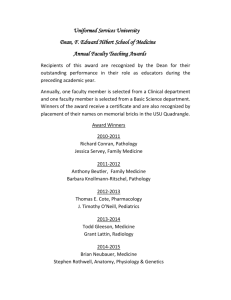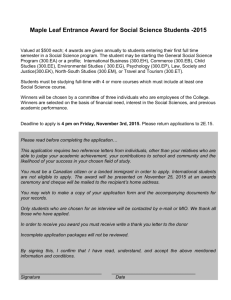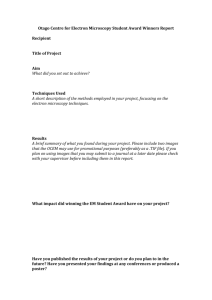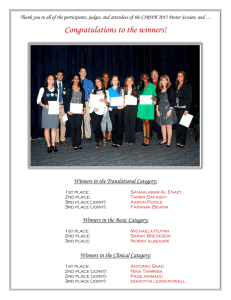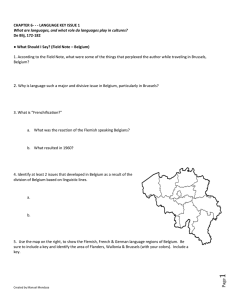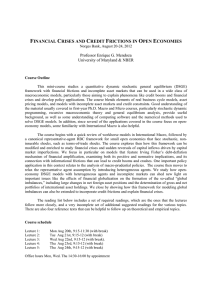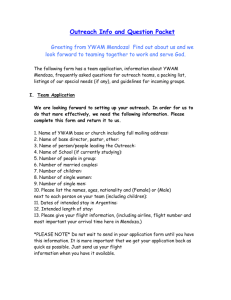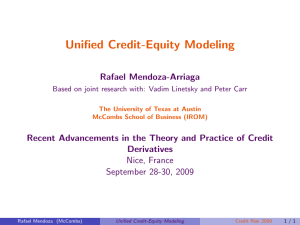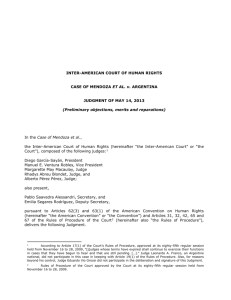'Transformative Leadership' Employs Spirituality for Social Change
advertisement
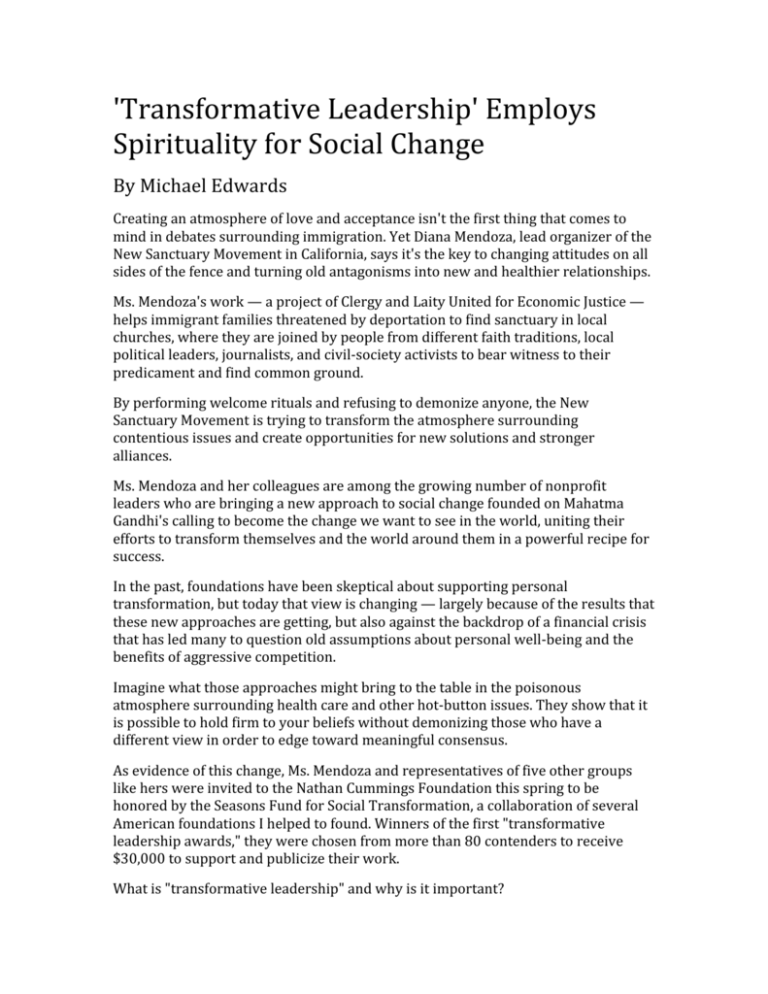
'Transformative Leadership' Employs Spirituality for Social Change By Michael Edwards Creating an atmosphere of love and acceptance isn't the first thing that comes to mind in debates surrounding immigration. Yet Diana Mendoza, lead organizer of the New Sanctuary Movement in California, says it's the key to changing attitudes on all sides of the fence and turning old antagonisms into new and healthier relationships. Ms. Mendoza's work — a project of Clergy and Laity United for Economic Justice — helps immigrant families threatened by deportation to find sanctuary in local churches, where they are joined by people from different faith traditions, local political leaders, journalists, and civil‐society activists to bear witness to their predicament and find common ground. By performing welcome rituals and refusing to demonize anyone, the New Sanctuary Movement is trying to transform the atmosphere surrounding contentious issues and create opportunities for new solutions and stronger alliances. Ms. Mendoza and her colleagues are among the growing number of nonprofit leaders who are bringing a new approach to social change founded on Mahatma Gandhi's calling to become the change we want to see in the world, uniting their efforts to transform themselves and the world around them in a powerful recipe for success. In the past, foundations have been skeptical about supporting personal transformation, but today that view is changing — largely because of the results that these new approaches are getting, but also against the backdrop of a financial crisis that has led many to question old assumptions about personal well‐being and the benefits of aggressive competition. Imagine what those approaches might bring to the table in the poisonous atmosphere surrounding health care and other hot‐button issues. They show that it is possible to hold firm to your beliefs without demonizing those who have a different view in order to edge toward meaningful consensus. As evidence of this change, Ms. Mendoza and representatives of five other groups like hers were invited to the Nathan Cummings Foundation this spring to be honored by the Seasons Fund for Social Transformation, a collaboration of several American foundations I helped to found. Winners of the first "transformative leadership awards," they were chosen from more than 80 contenders to receive $30,000 to support and publicize their work. What is "transformative leadership" and why is it important? Ana Maria Archila, executive director of Make the Road New York, one of the award winners, explained it like this: "It's a special kind of leadership that recognizes that we are all connected and therefore have to find the places which are not functioning well and fix them by building relationships of love and trust." In her case those relationships underpinned the successful merger of two organizations, a process that can tear nonprofit groups apart if not handled correctly. Building strong relationships takes time and the use of techniques that encourage staff members to identify the ways in which their own attitudes and behavior affect the health and success of their professional endeavors. For example, they must learn contemplative and reflective practices like periods of silence during meetings, inner‐awareness training that fosters deep listening and mindfulness, insights from neuroscience that reveal hidden blockages and barriers, and employment policies on family leave, health benefits, management, and supervision that create more opportunities to develop these skills and put them into practice. Many of the prize winners were trained in these methods by the Rockwood Leadership Institute, which also won a Seasons Fund award. According to Rockwood's Robert Gass, "Nine years ago when the Rockwood training was launched, few people from nonprofits wanted to come for what they saw as three days of navel‐gazing." Now the program is continually oversubscribed and has already trained more than 2,250 leaders from nonprofit groups nationwide. What is striking about those organizations is that they are about as far away from the usual image of detached meditation as one could possibly imagine. Their leaders are hardheaded activists tackling some of the toughest issues in society, but they tackle them with none of the fear and insecurity that have sometimes been associated with activism in the past, and that's the secret of their success. "We are hard on issues, soft on people," as Tzeporah Berman and Merran Smith have described their work at ForestEthics, another award winner. Together, they forged a coalition among government, businesses, indigenous groups, and civil‐society activists — parties whose agendas once seemed hopelessly incompatible — that saved the Great Bear Rainforest in British Columbia. "We found ourselves getting caught up in the same old battle, getting angry and getting nowhere. Then, Merran passed me a note — 'Breathe,' it said — so we suggested that we needed to take a break, come back, and revise the agenda. When we returned, the atmosphere was remarkably different — and we realized that it was because we'd brought an entirely new energy into the equation." The other award winners tell similarly inspiring stories of success. Ms. Mendoza's group has won health‐care benefits for more than 70,000 grocery workers by involving industry leaders in discussions about their social responsibility that draw on their religious world views. Make the Road New York has recouped $6.5‐million in lost wages for immigrant workers and won citywide legislation requiring all government agencies to provide help with translation by bringing the whole range of available resources to the negotiating table — intellectual, organizational, financial, personal, and spiritual — to tackle the power dynamics that can undermine results and block improvements in performance. Do foundations themselves have the courage to adopt these practices internally — to become less hierarchical and competitive and more collaborative and self‐ reflective? Diana Mendoza thinks the benefits would be huge. "I'm constantly being transformed," she says, "and I see tangible benefits in our work all the time." Among the examples she cites: healthier relationships among nonprofit leaders, stronger coalitions, less burnout, more sustainability, and a real sense of community between organizations and those with whom they work. Imagine how much more could be achieved if foundations also became the change they want to see? Michael Edwards is a distinguished senior fellow at Demos, a think tank in New York, and co­founder of the Seasons Fund for Social Transformation. Copyright © 2009 The Chronicle of Philanthropy

